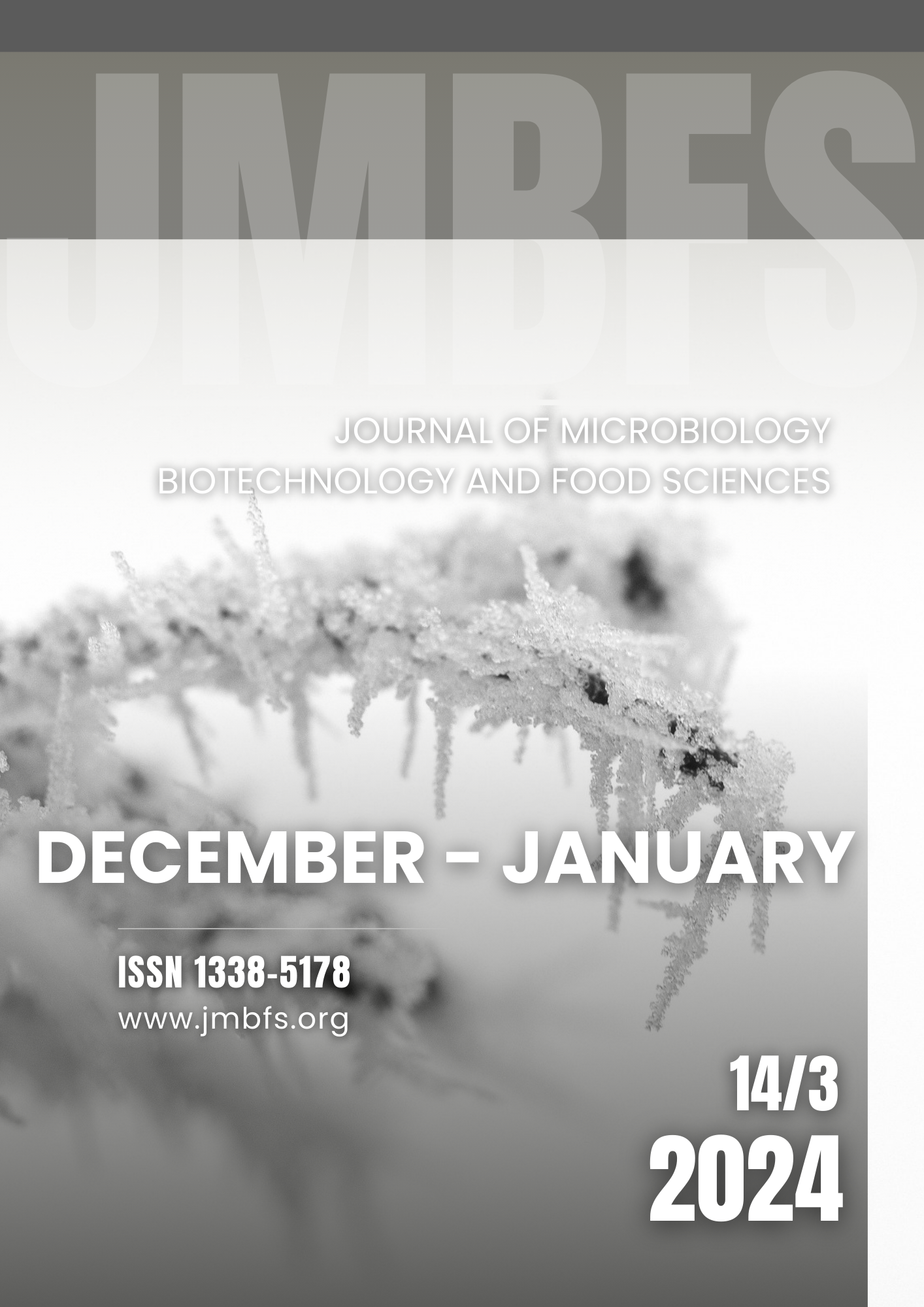BIOACTIVE COMPONENTS AND ANTIBACTERIAL ACTIVITY OF RAW AND BOILED EGYPTIAN PEPPER
DOI:
https://doi.org/10.55251/jmbfs.11878Keywords:
Sweet pepper, Chilli pepper, Capsicum, Boiling, Bioactive compounds, Antioxidant activity, Antibacterial activityAbstract
In the current study, two cultivars of pepper (Capsicum annuum and Capsicum frutescens) at two maturity stages (green and red) were evaluated for their contents of some bioactive compounds and antibacterial activities for their ethanolic and aqueous extracts in both raw and heat-treated forms (boiling). Boiling treatment was performed under the Egyptian household conditions. Proximate analyses of the tested samples were determined, and the resulted data showed that ash and crude protein were declined after boiling treatment, while crude fat and total carbohydrate increased. Vitamin C, β-carotene and vitamin E as well as capsaicin contents were also estimated by HPLC, and the obtained data showed that all of those components were lowered by boiling treatment. Antioxidant activity of fresh and heat-treated pepper samples was carried out by using of 2,2-azinobis-3-ethylbenzothiazoline-6-sulfonic acid (ABTS•) assay. Data showed that all pepper samples had high antioxidant activities which were increased because of boiling treatment. Finally, the antibacterial activity of all ethanolic and aqueous extracts as well as capsaicin standard was tested against both Gram-positive and Gram-negative pathogenic bacteria. Only, ethanolic extracts partially inhibited all the tested organisms except, Bacillus cereus which was completely inhibited by both ethanolic and aqueous extracts.
Downloads
Downloads
Published
How to Cite
Issue
Section
License
Copyright (c) 2023 Shaimaa G. Abdel Salam, Mohamed Magdy Rashed, Farrukh Makhmudov, Sanavar Azimova, Maksim Rebezov, Gulnara Zhumanova, Botakoz Kulushtayeva, Mohammad Ali Shariati, Ammar AL-Farga, Emam A. Abdel Rahim2

This work is licensed under a Creative Commons Attribution 4.0 International License.
All papers published in the Journal of Microbiology, Biotechnology and Food Sciences are published under a CC-BY licence (CC-BY 4.0). Published materials can be shared (copy and redistribute the material in any medium or format) and adapted (remix, transform, and build upon the material for any purpose, even commercially) with specifying the author(s).





